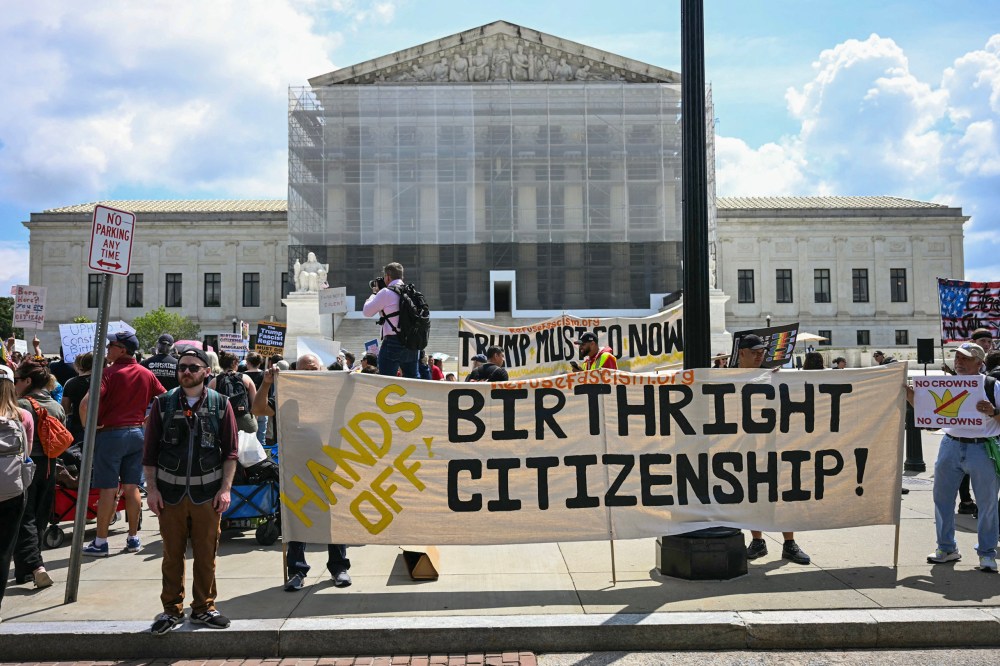Welcome back, Deadline: Legal Newsletter readers. “Catch me if you can.” That’s how Justice Ketanji Brown Jackson described the Trump administration’s stance at this week’s birthright citizenship hearing. Reflecting on the hearing in the broader context of Donald Trump’s second term, Jackson’s description captures the administration’s strategy across the board: Use the law to try to get away with breaking the law.
Jackson was calling out Solicitor General John Sauer’s claim that federal trial court judges shouldn’t be allowed to grant nationwide injunctions blocking Trump’s policies. Sauer argued that the injunctions must be limited to the specific parties who filed the lawsuits in these cases. The Biden-appointed justice said Sauer’s approach “seems to turn our justice system, in my view at least, into a ‘catch me if you can’ kind of regime,” where “everybody has to have a lawyer and file a lawsuit in order for the government to stop violating people’s rights.”
Sauer countered that the “catch me if you can” problem cuts the other way, “where we have the government racing from jurisdiction to jurisdiction having to sort of clear the table in order to implement a new policy.” Whichever side of that semantic battle one finds more persuasive, it’s telling that he wasn’t pressing the justices to approve the legality of Trump’s executive order. Instead, he was only asking to limit the scope of the nationwide injunctions.
Why did Sauer take that seemingly measured approach? He can’t admit this, of course, but it likely has to do with the fact that every judge to review Trump’s order has laughed it out of court, and even this Supreme Court isn’t poised to reverse those judges’ legal conclusions. “If I were in your shoes, there is no way I’d approach the Supreme Court with this case,” Justice Elena Kagan, a former solicitor general herself, told Sauer. On that note, Trump appointee Amy Coney Barrett observed that the administration has urged speedy resolutions in other cases — but not this one.
The hearing therefore exposed the illegality of Trump’s bid to rewrite the constitutional guarantee of automatic citizenship for people born here (which has narrow exceptions not relevant in this case, like children of foreign diplomats). Justice Sonia Sotomayor said Trump’s order violates four Supreme Court precedents. So you can see, as Kagan bluntly put it, why Sauer isn’t rushing for a ruling on the merits. He’d rather play the procedural game and cast the administration as a victim of judicial overreach, without having to defend what one of the trial judges who blocked it called a “blatantly unconstitutional” order.
Sauer could win the procedural battle at the high court. The hearing left it unclear what the justices will say about the propriety of nationwide injunctions generally, an issue that various justices have complained about over the years in cases having nothing to do with birthright citizenship. Whatever they say in their forthcoming ruling could affect not only birthright citizenship, but also all sorts of litigation against this administration and beyond.














